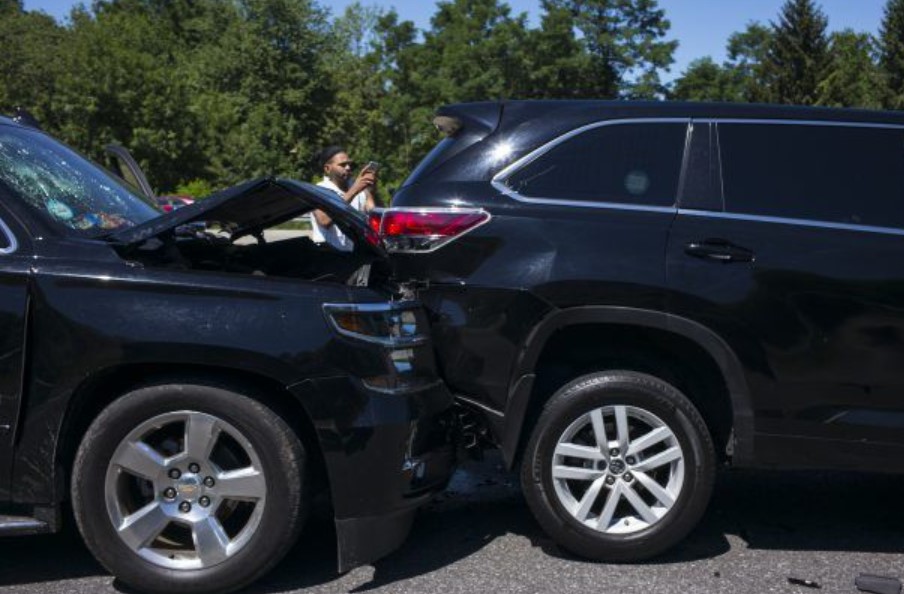Understanding the intricacies of Does Gap Insurance Cover Lemon Law? can be challenging. This article delves deep into the relationship between gap insurance and lemon law claims. Gap insurance is a unique form of coverage designed to bridge the gap between a vehicle’s actual value and the amount still owed on it.
On the other hand, lemon laws protect consumers from chronically defective vehicles. But, does gap insurance extend to issues covered under lemon laws? Let’s explore this intriguing query.
Key Takeaways
- Gap insurance typically covers the difference between a car’s actual cash value and the amount owed on it.
- Lemon laws are designed to protect consumers from vehicles with repeated, unfixable defects.
- The coverage of gap insurance generally does not extend to lemon law buybacks or replacements.
- Understanding the specifics of your gap insurance policy and state lemon laws is crucial.
Does Gap Insurance Cover Lemon Law?
No, gap insurance does not typically cover lemon law-related issues. Gap insurance is designed to cover the financial gap in the event of a total loss of the vehicle, not to address defects or repair issues that lemon laws target.

What is Gap Insurance?
Gap insurance plays a crucial role in protecting car owners financially. It covers the difference between the actual cash value of a vehicle and the balance still owed on the financing or lease agreement. This type of insurance is particularly beneficial for new car owners, as vehicles can depreciate quickly.
What Are Lemon Laws?
Lemon laws are consumer protection laws. They provide remedies to consumers who purchase vehicles with repeated, unfixable defects. These laws vary by state but generally allow the owner to receive a refund or replacement vehicle if the car meets certain criteria of being a “lemon.”
Coverage Limitations of Gap Insurance
While gap insurance is a valuable tool for many car owners, it has its limitations. Specifically, it does not cover issues related to the vehicle’s quality or ongoing maintenance problems, which are the realms covered by lemon laws.
Understanding Gap Insurance Policies
Every gap insurance policy has specific terms and conditions. It is important for consumers to thoroughly understand what their policy covers and what it excludes. Typically, these policies focus on the vehicle’s value and financing, not on its operational issues.
Lemon Law Exclusions
Lemon laws and gap insurance operate in different domains of consumer protection. Lemon laws focus on the quality and functionality of the vehicle, whereas gap insurance is concerned with the vehicle’s financial aspects. Therefore, issues remedied under lemon laws are not covered by gap insurance.
The Intersection of Gap Insurance and Lemon Laws
While gap insurance and lemon laws serve different purposes, they intersect in the realm of consumer protection. Both aim to safeguard consumers, but their methods and areas of focus differ significantly.

Consumer Protection Perspective
From a consumer protection standpoint, it’s vital to understand both these areas. Knowing the limits of gap insurance and the protections offered by lemon laws empowers consumers to make informed decisions and seek appropriate remedies when faced with vehicle issues.
Legal Considerations
Legally, the distinction between what is covered by gap insurance and what falls under lemon laws is clear. Consumers should seek legal advice if they find themselves in a situation where their vehicle’s issues might intersect these two areas.
Evaluating Your Car Insurance Needs
Understanding your specific car insurance needs is essential. This includes evaluating whether gap insurance is right for you and how it complements other forms of coverage, including those provided under lemon laws.
Importance of Comprehensive Coverage
While gap insurance is important, it should be part of a broader comprehensive coverage plan. This plan might include standard auto insurance, extended warranties, and an understanding of your state’s lemon laws.
Assessing Risks and Coverage Options
Assessing the risks associated with your vehicle and understanding the different coverage options available, including gap insurance and protections under lemon laws, is key to making informed insurance decisions.
Navigating the legal landscape of lemon laws and gap insurance can be a complex endeavor. It requires a detailed understanding of both areas to ensure optimal consumer protection and financial coverage.

Legal Nuances of Lemon Laws
Lemon laws vary significantly from state to state, with each jurisdiction having its own criteria and procedures for declaring a vehicle a “lemon.” Understanding these nuances is critical for consumers who find themselves repeatedly dealing with vehicle defects. These laws provide a framework for seeking remedies, which typically do not intersect with the financial coverage provided by gap insurance.
Gap Insurance and Legal Claims
In terms of legal claims, gap insurance is generally not involved in the lemon law process. Its role is confined to financial protection in cases of vehicle loss or depreciation. For consumers navigating both lemon law claims and gap insurance, it’s advisable to consult legal professionals to understand the scope and limitations of their coverage and rights.
Financial Implications of Lemon Law and Gap Insurance
Understanding the financial implications of lemon law and gap insurance is key to making informed decisions about vehicle protection and coverage.
Financial Protection Through Gap Insurance
Gap insurance provides financial protection by covering the difference between a vehicle’s depreciated value and the amount still owed. This type of insurance becomes particularly important in cases where a vehicle depreciates faster than the loan is paid off, a situation not uncommon with new vehicles.
Lemon Law Financial Remedies
On the other hand, lemon laws offer financial remedies in the form of refunds or replacement vehicles. However, these remedies are specific to the vehicle’s quality issues and do not typically involve the vehicle’s financing or value aspects, which are the main concerns of gap insurance.
Gap Insurance and Vehicle Depreciation
The role of gap insurance in vehicle depreciation is a critical aspect to consider, especially for new car buyers.

Depreciation and Gap Coverage
Vehicles can depreciate rapidly, often losing a significant portion of their value in the first few years. Gap insurance is an important safeguard in this scenario, as it covers the financial gap that can occur when a car’s market value drops below the amount owed on it.
Gap Insurance Considerations for New Car Owners
For new car owners, evaluating the need for gap insurance is a crucial step. Given the rapid depreciation of new vehicles, gap insurance can provide peace of mind by ensuring that they are not left with a financial burden in case of a total loss or theft of the vehicle.
Consumer Advice on Gap Insurance and Lemon Law Protection
Consumers should be well-informed about the protections offered by both gap insurance and lemon laws to make the best decisions for their circumstances.
Educating Yourself on Coverage and Rights
It’s vital for consumers to educate themselves on the specifics of their gap insurance policy and understand their rights under lemon laws. This knowledge is key to effectively navigating situations where vehicle quality issues and financial considerations intersect.
Seeking Professional Advice
Seeking advice from insurance professionals and legal advisors can provide clarity and guidance, ensuring that consumers are fully aware of their coverage and legal protections when dealing with vehicle defects and financial matters related to their car.
Why Would A Gap Claim Be Denied?
Gap insurance claims can be denied for several reasons. Common factors leading to denial include:

- Lapsed Insurance Policy: If the primary auto insurance policy has lapsed due to non-payment or other reasons, gap insurance will not cover the claim.
- Exclusions in the Policy: Certain types of damage or situations, such as mechanical failures or damage due to driving under the influence, might be excluded in the gap insurance policy.
- Misrepresentation or Fraud: Any form of misrepresentation or fraud discovered during the claim process can result in denial.
- Late Claim Reporting: Failing to report a claim within the time frame specified in the policy can lead to denial.
- Incomplete Documentation: Inadequate or incomplete documentation regarding the claim or the original purchase of the vehicle can be a reason for denial.
Understanding the specifics of your gap insurance policy and adhering to its terms is crucial to avoid claim denials.
Will Gap Insurance Cover Negative Equity?
Yes, gap insurance can cover negative equity in certain situations. Negative equity occurs when the amount owed on a vehicle is more than its actual cash value.
In the event of a total loss, gap insurance covers the difference between the insurance payout (based on the car’s current market value) and the remaining balance on the loan or lease. However, it’s important to note that gap insurance does not cover negative equity resulting from refinancing a car loan or rolling over an old car loan into a new one.
What Is The Most Gap Insurance Will Pay?
The maximum amount that gap insurance will pay varies depending on the policy’s terms and conditions. Generally, gap insurance covers up to a certain percentage of the actual cash value of the vehicle, typically between 125% to 150%.

This percentage is designed to cover the “gap” between the car’s depreciated value and the amount still owed. However, it’s important to carefully review the policy to understand its payout limits and any conditions that may apply.
Will Gap Insurance Pay Off My Loan?
Gap insurance is designed to pay off the remaining balance of your auto loan if your vehicle is totaled or stolen and you owe more than its depreciated value. However, it pays only the difference between the actual cash value of the vehicle as determined by your primary auto insurance and the outstanding loan balance. It does not cover any late fees, extended warranties added to the loan, or other types of loans not directly related to the vehicle’s purchase or lease.
Conclusion
In conclusion, while gap insurance does not cover lemon law issues, it plays a significant role in a comprehensive vehicle protection strategy. It’s crucial to understand the limitations of gap insurance and how it complements other forms of consumer protection, like lemon laws. By doing so, car owners can ensure they are adequately protected against a range of potential issues.
People Also Ask
Are there any vehicles not covered by lemon laws?
Yes, certain vehicles might not be covered by lemon laws, such as motorcycles, boats, and in some states, used cars. It’s important to check the specific provisions of your state’s lemon law to understand which vehicles are eligible.
How do I file a claim under lemon laws?
Filing a claim under lemon laws usually involves gathering documentation of the defects, repair attempts, and communication with the manufacturer or dealer. The specific process can vary based on state laws, so consulting with a legal expert is advisable.
Does gap insurance cover engine failures or other mechanical issues?
No, gap insurance does not cover engine failures or other mechanical issues. It’s designed to cover financial loss related to the car’s value and loan balance, not mechanical repairs.
Can I cancel gap insurance later?
Yes, you can usually cancel gap insurance if you feel it’s no longer necessary, such as when the loan amount drops below the car’s actual value. Refund policies vary, so it’s important to check with your insurance provider.
What are the typical costs for gap insurance?
The cost of gap insurance varies based on factors like the value of the car, the length of the loan, and the specific policy terms. Generally, it can range from a few dollars to several hundred dollars per year.

Muhammad Talha Naeem is a seasoned finance professional with a wealth of practical experience in various niches of the financial world. With a career spanning over a decade, Talha has consistently demonstrated his expertise in navigating the complexities of finance, making him a trusted and reliable figure in the industry.








